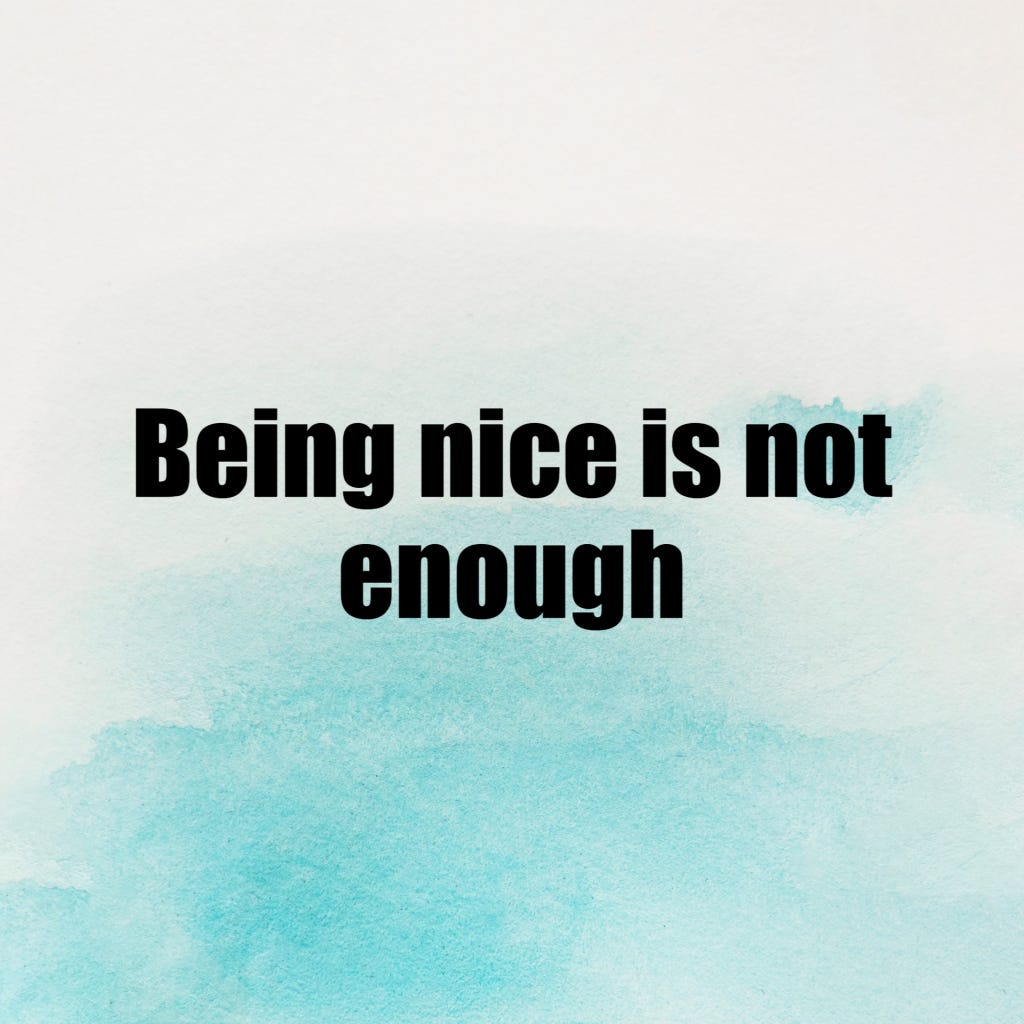Day 4 Trustworthy ≠ Nice
RethinkChurch is doing a 22-day journey for self-reflection based on John Wesley’s 22 questions. I will be trying to compose short blog posts addressing each question. I am using these posts to encourage Christians, especially Progressive and Mainline Christians to reflect deeply on what it means to be Church in a world marred by oppression and violence.
Day 4: Can I be trusted?
Most of us would like to believe that we are genuinely nice and trustworthy people. I would like to believe that in general, most of us try our best to be decent people. However, many of us confuse niceness with trustworthiness. We believe that just because we act nice and are not consistently cruel to other people, that this makes us honest, ethical and dependable people. In fact, we get defensive, especially if we have some measure of power, whether as a result of our race, socio-economic class, sexual orientation, or gender identity, if someone even implies that we might not trustworthy. We automatically assume that our “nice” gestures entitle us to the respect and trust of other people, especially those from marginalized groups.
For example, I cannot tell you how many times nice, progressive, white people have gotten offended and angry when a Black or Brown person dares to say that white supremacy infects every institution in the United States. No institution-whether it be the government, academia, or the institutional Church is immune from the temptation to devalue and marginalize Black and Brown people.
Does not mean every branch of the government, or every person within academia, or every white Christian is blatantly racist? No, it just means that because the United States has historically and into the present day been shaped by racism and white supremacy, that every institution must critically examine how they are impacted and influenced by racism. However, just implying that a cherished institution is not a beacon of perfect equality and justice immediately puts people on the defensive. Especially if the institution discussed is not overtly racist or “mean.”
Everyone knows the KKK is racist. Or that the alt-right believes in white superiority like the KKK, but they don’t go around wearing white hood. But many forms of racism are not so in your face. For instance, many institutions, instead of saying, “white people are better than Black and Brown people and they should be barred from participating in this institution,” instead seek to force Black and Brown people to conform to standards of professionalization that are based on what the white status quo considers to be “acceptable” behavior. Black and Brown people who refuse to speak a certain way or dress a certain way are ridiculed, derided, and kicked out. This happens in every institution, including the Church.
Well meaning, nice White Christians get offended when a Black or Brown person wants to discuss racism within the Christian Church. Many immediately state, “You aren’t talking about my congregation. We are so liberal. Most of us voted for Obama.” Or they will insist, “we treat every visitor, no matter their race or ethnicity with respect. We are nice to them. We gave a poor Black family some money and toys just last week.” But what is not examined are the structural issues that ensure the continued exclusion Black and Brown people from positions of leadership in Mainline and Progressive congregations.
Of course I am not saying that being nice to members of marginalized groups is wrong. What I am saying is that being nice is not enough. Treating members of marginalized groups, “nicely” does not mean that one is trustworthy. Being nice does not render one an ally.
Progressive and Mainline white Christians often ask me what they can do to be an “effective” ally. Some bemoan how they have been subject to mistreatment and distrust by individual Black and Brown people. They often give me a rundown of all the actions that they have taken that proves that they are both nice and trustworthy. They are great at saying all the “right” things to “prove” that they are against racism.
But what white Mainline and Progressive Christians need to understand is that Brown and Black people are used to institutions saying the right thing. We are used to institutions wanting to do the bare minimum in order to demonstrate they aren’t like those mean racists. We are used to placing our trust and faith in predominately white institutions and being betrayed.
So, while we see and appreciate the individual acts of kindness you show us, unless you are critically examining the way your congregation/denomination has been shaped by racism and white supremacy and are taking concrete acts to tackle systematic racism, then no, you are not trustworthy.
Day 1: Illusions of Perfection



